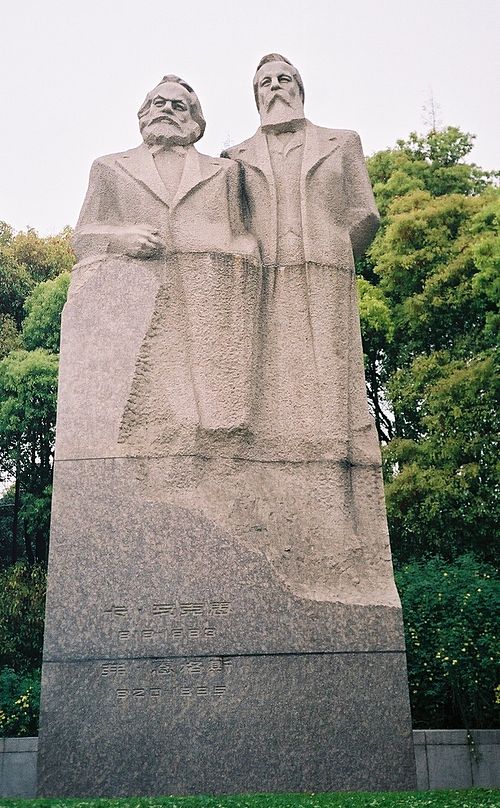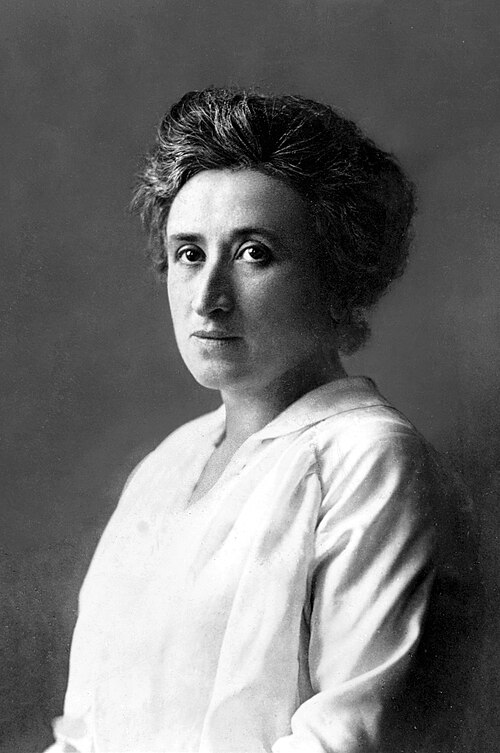Communismnoun
Any political ideology or philosophy advocating holding the production of resources collectively.
Communismnoun
Any political social system that implements a communist political philosophy.
Communismnoun
The international socialist society where classes, money, and the state no longer exist.
Communismnoun
A scheme of equalizing the social conditions of life; specifically, a scheme which contemplates the abolition of inequalities in the possession of property, as by distributing all wealth equally to all, or by holding all wealth in common for the equal use and advantage of all.
Communismnoun
a form of socialism that abolishes private ownership
Communismnoun
a political theory favoring collectivism in a classless society
Communism
Communism (from Latin communis, 'common, universal') is a philosophical, social, political, and economic ideology and movement whose ultimate goal is the establishment of a communist society, namely a socioeconomic order structured upon the ideas of common ownership of the means of production and the absence of social classes, money, and, in some cases, the state. As such, communism is a specific form of socialism.
Bolshevismnoun
.
Bolshevismnoun
a form of communism based on the writings of Marx and Lenin.
Bolshevismnoun
Soviet communism
Bolshevism
Bolshevism (from Bolshevik) is a revolutionary Marxist current of political thought and political regime associated with the formation of a rigidly centralized, cohesive and disciplined party of social revolution, focused on overthrowing the existing capitalist state system, seizing power and establishing the .It originated at the beginning of the 20th century in Russia and was associated with the activities of the Bolshevik faction within the Russian Social Democratic Labour Party – and first of all, the founder of the faction, Vladimir Lenin. Remaining on the soil of Marxism, Bolshevism at the same time absorbed elements of the ideology and practice of the revolutionaries of the second half of the 19th century (Sergey Nechaev, Pyotr Tkachev, Nikolay Chernyshevsky) and had many points of contact with such domestic left–wing radical movements as populism.














